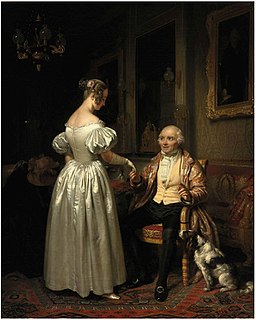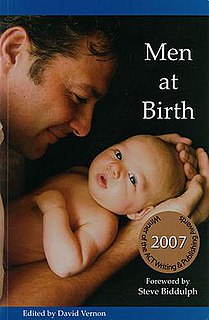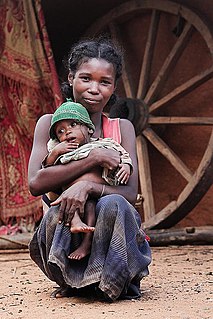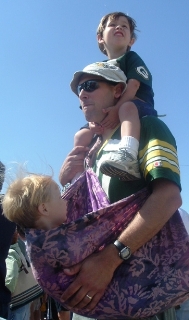 W
WBiblical patriarchy, also known as Christian patriarchy, is a set of beliefs in Reformed Evangelical Protestant Christianity concerning gender relations and their manifestations in institutions, including marriage, the family, and the home. It sees the father as the head of the home, responsible for the conduct of his family. Notable people associated with biblical patriarchy include Douglas Wilson, R. C. Sproul, Jr., Voddie Baucham, the Duggar family, and Douglas Phillips.
 W
WA father is the male parent of a child. Besides the paternal bonds of a father to his children, the father may have a parental, legal, and social relationship with the child that carries with it certain rights and obligations. An adoptive father is a male who has become the child's parent through the legal process of adoption. A biological father is the male genetic contributor to the creation of the infant, through sexual intercourse or sperm donation. A biological father may have legal obligations to a child not raised by him, such as an obligation of monetary support. A putative father is a man whose biological relationship to a child is alleged but has not been established. A stepfather is a male who is the husband of a child's mother and they may form a family unit, but who generally does not have the legal rights and responsibilities of a parent in relation to the child.
 W
WThe Bloke's Guide To Pregnancy is a 2004 book by Jon Smith, a father, Internet marketer. The book provides advice and information to expectant and new fathers. The book outlines what a father can expect to see, think, and feel over the nine months of pregnancy. The book has generated some online debate regarding the role of fathers during pregnancy.
 W
WDisownment occurs when a parent renounces or no longer accepts a child as a family member, usually when the child does something that is perceived as unbecoming and those actions lead to serious emotional consequences. Different from giving a child up for adoption, it is a social and interpersonal act and usually takes place later in the child's life, which means that the disowned child would have to make their own arrangements for future care. Among other things, it implies no responsibility for future care, making it similar to divorce or repudiation, meaning that the disowned child would have to find another residence to call home and be cared for.
 W
WA father is the male parent of a child. Besides the paternal bonds of a father to his children, the father may have a parental, legal, and social relationship with the child that carries with it certain rights and obligations. An adoptive father is a male who has become the child's parent through the legal process of adoption. A biological father is the male genetic contributor to the creation of the infant, through sexual intercourse or sperm donation. A biological father may have legal obligations to a child not raised by him, such as an obligation of monetary support. A putative father is a man whose biological relationship to a child is alleged but has not been established. A stepfather is a male who is the husband of a child's mother and they may form a family unit, but who generally does not have the legal rights and responsibilities of a parent in relation to the child.
 W
WA father-daughter dance is a dance between a father and his daughter. Father-daughter dances are common at wedding receptions in the United States although not all weddings have a father-daughter dance. In situations where a daughter's father is not available, he may be substituted with a man of an older generation, such as an uncle or the father of a close friend. Father-daughter dances are very common at quinceañeras and debutante balls. A common trend in 2018 at wedding receptions is to only have a formal first dance for the wedding couple and party songs, forgoing the father-daughter dance. During the COVID-19 pandemic beginning in 2020, this trend was reversed.
 W
WFathering: A Journal of Theory, Research, and Practice about Men as Fathers, is a peer-reviewed academic journal established in 2003 as the third of five published by Men's Studies Press and the first worldwide to focus specifically on fatherhood. Editor-in-Chief is Jaipaul Roopnarine.
 W
WMen at Birth is a book from Australian writer David Vernon.
 W
WThe role of men in childbirth in the Western world has become more participatory than it was in the past. More Western women want their male partners to give active assistance during pregnancy and childbirth.
 W
WMy Dad Is Better than Your Dad was a reality sports TV show on NBC that premiered on February 18, 2008. The show was produced by Mark Burnett, producer of other shows like Survivor, The Apprentice, and Are You Smarter Than a 5th Grader?, and was hosted by actor Dan Cortese. Four teams of children and their fathers competed in each episode, with the winning team having the chance to win up to $50,000.
 W
WThe National Fatherhood Initiative (NFI) is a non-profit, non-partisan, non-sectarian organization that aims to improve the well-being of children through the promotion of responsible fatherhood. Headquartered in Germantown, Maryland, United States, its mission is to improve the well-being of children by increasing the proportion of children with involved, responsible, and committed fathers. NFI was founded on March 7, 1994, by Don Eberly, a civil society scholar.
 W
WA parent is a caregiver of the offspring in their own species. In humans, a parent is the caretaker of a child. A biological parent is a person whose gamete resulted in a child, a male through the sperm, and a female through the ovum. Biological parents are first-degree relatives and have 50% genetic meet. A female can also become a parent through surrogacy. Some parents may be adoptive parents, who nurture and raise an offspring, but are not biologically related to the child. Orphans without adoptive parents can be raised by their grandparents or other family members.
 W
WA paternal bond is the human bond between a father and his child.
 W
WPatricide is (i) the act of killing one's own father, or (ii) a person who kills their own father or stepfather. The word patricide derives from the Greek word pater (father) and the Latin suffix -cida. Patricide is a sub-form of parricide, which is defined as an act of killing a close relative. In many cultures and religions patricide was considered one of the worst sins. For example, according to Marcus Tullius Cicero, in the Roman Republic it was the only crime for which the civilian could be sentenced to death.
 W
WA stay-at-home dad is a father who is the main caregiver of the children and is generally the homemaker of the household. As families have evolved, the practice of being a stay-at-home dad has become more common and socially acceptable. Pre-industrialization, the family worked together as a unit and was self-sufficient. When affection-based marriages emerged in the 1830s, parents began devoting more attention to children and family relationships became more open. Beginning with the Industrial Revolution, large-scale production replaced home manufacturing; this shift, coupled with prevailing norms governing sex or gender roles, dictated that the father become the breadwinner and the mother the caregiver.